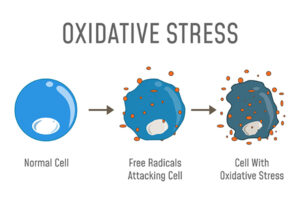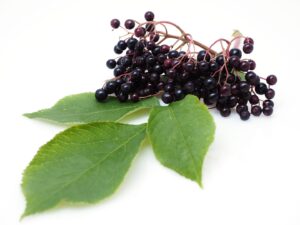
Improving Libido and Male Function, Naturally
‘Issues with male function’ denotes a variety of problems, including those related to impotence and lack of desire. Statistical data
About 15% of couples trying to get pregnant may encounter difficulties. In approximately half of these cases, the fertility challenges are due to ‘male factor infertility’ – i.e. an issue with the male.
During the last decades, clinicians have found a decrease in the male sperm quality indicators. This decrease has been linked to free radical damage due to increases in obesity rates, changes in lifestyle, exposure to environmental toxins, and poor dietary habits. There are various health problems that can cause fertility problems in men, including but not limited to hormonal and metabolic disorders (such as diabetes and hypothyroidism), varicocele (enlarged veins), various infections, and/or problems with the structure of the male reproductive system or obstructive problems within it. Yet in about 25% of cases, the fertility problem will be classified as unexplained – ie: the cause is unknown.
The diagnosis of ‘male factor infertility’ will be given in situations where there is a visible problem with the sperm (in its quantity, motility or shape), and may also be given even if there is no visible problem with the sperm.
Recent studies indicate that many cases of male infertility are related to ‘oxidative stress’ – a condition that causes damage and dysfunction to the sperm cells.
What is oxidative stress and what are its consequences on sperm cells and fertility problems?
‘Oxidative stress’ refers to an imbalance in the body’s tissues and cells (including the sperm cells), due a high amount of free radicals (components that damage the cells) and a low amount of antioxidants (components that neutralize free radicals and protect the cells and tissues). Oxidative stress is linked to a decrease in the body’s multi-system defense mechanisms, and many studies indicate that it may cause early aging processes, age-related diseases, inflammatory diseases, sclerosis, heart disease, diabetes, dementia and even cancerous processes.
Many studies show that oxidative stress causes damage to healthy sperm cells, both in their quality and in their ability to fertilize:
Statistical data from around the world shows that oxidative stress is one of the main causes of fertility problems due to a male factor. In 30-40% (!) of men with fertility problems, very high levels of free radicals were detected in the semen.
What are antioxidants and how do they improve sperm quality?
Antioxidants are natural components found naturally in foods and plants, and are often a vital component of nutritional supplements. Antioxidants effectively neutralize free radicals, thereby protecting the cells and tissues in the body from potential damage the free radicals may cause. Studies indicate that a diet rich in antioxidants contributes to the increase of body balance, helps strengthen the multisystemic defense mechanisms, and prevents chronic diseases.
In the context of male fertility, recent studies have shown that antioxidants are essential factors for sperm protection against free radical damage. Consumption of antioxidants – both naturally and via nutritional supplements – by men undergoing fertility treatment, was found to significantly increase sperm quality and motility.
Most medicinal herbs contain various powerful antioxidant components such as vitamins C and E, antioxidant pigments such as beta-carotene, chlorophyll and lutein as well as antioxidant plant compounds such as quercetin, phenols, flavonoids and more. All these effectively neutralize free radicals and contribute to the increase in sperm quality and motility.
Which herbs contain antioxidants?
Black elderberry – fruits and flowers
The elder is a tree that originates in Europe, but also grows in Israel. Its fruits and flowers have been used for many years in traditional herbal medicine to enhance immunity and support inflammatory conditions to reduce fever, and more. Elderberry fruits contain a unique variety of powerful antioxidants:
Cinnamon
The cinnamon bark also contains a wealth of antioxidants called ‘polyphenols’, which help protect the body from free radical damage. In studies that compared the antioxidant activity of 26 medicinal plants, the antioxidant effect of cinnamon was the most powerful – even more than garlic and oregano. The antioxidant activity of cinnamon is so powerful and effective on its own, that it is used as a natural food preservative. In addition, cinnamon has anti-inflammatory properties and has been found to balance sugar levels.
Many studies have shown that cinnamon has a distinct effect on sperm viability and motility, and also increases the levels of the male hormones testosterone, LH, and FSH. Taking cinnamon significantly increases the level of antioxidants in the blood.
Tribulus (Puncture Vine)
Tribulus is a common plant found in Israel and throughout the Middle East, Europe and Asia. In ancient Greek and Indian medicine, tribulus is defined as a strengthening and aphrodisiac plant which increases sexual desire, and has been used in India to treat impotence and fertility problems in men. In Eastern Europe, tribulus is used to strengthen sexual power.
Studies have shown that tribulus contains a wide variety of components with biological activity, such as saponins, flavonoids, alkaloids, unsaturated fatty acids, vitamins and more. The most studied active component in tribulus is a component called protodioscin saponin.
Disclaimer: Medicinal plants are not drugs. The purpose of this article is to provide a general overview of approaches in complementary medicine and the information provided does not constitute a qualified medical recommendation. This article is not intended to diagnose or treat any disease and is not a substitute for medical advice or treatment. Always contact your health practitioner before starting any nutritional supplement programs.

‘Issues with male function’ denotes a variety of problems, including those related to impotence and lack of desire. Statistical data

The effect of oxidative stress on male fertility and sperm quality indicators.
Fertility problems are very common, affecting approximately 1 in 6 couples.

In recent decades, women throughout the world have turned to traditional medicine to balance hormonal function and to treat common
Sign up for our fertility guidance campaign.
Get information, tips, and advice regarding fertility and relationships via email.

כשרות
Vida’s dietary supplements are not medicine. They are not intended to diagnose, treat, cure or prevent any disease. In case of a medical concern, please consult your attending physician.
Vida products are manufactured in a factory that meets the requirements of the GMP for proper manufacturing conditions. The information provided about them has not been evaluated by the GMP.
The information provided on this website is for informational purposes only and is not intended as a substitute for advice from your physician or other health care professional. You should not use the information on this site to diagnose or treat any health problem or condition. Always consult with a healthcare professional before starting any diet, exercise or nutritional supplement program, before taking any medication, or if you suspect you might have a health problem.
Always read the information included with your product for the most up-to-date nutritional information.
FDA Disclaimer: These statements have not been evaluated by the Food and Drug Administration. This product is not intended to diagnose, treat, cure or prevent any disease.
designed by b-splash.com | powered by c-site.co.il
Get information, tips, and advice regarding fertility and relationships.